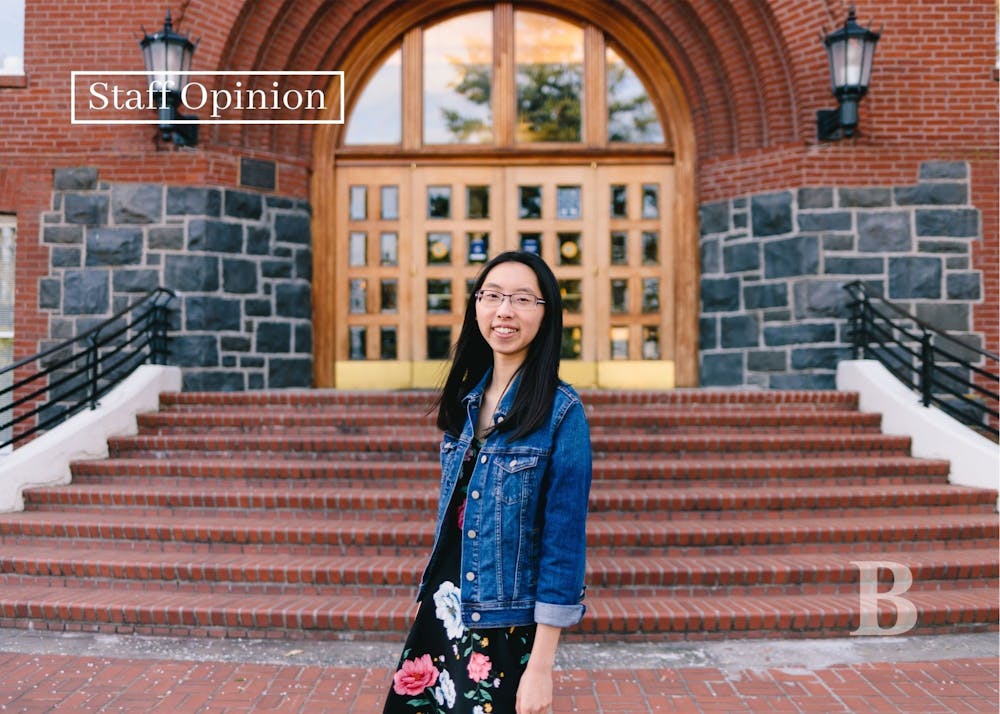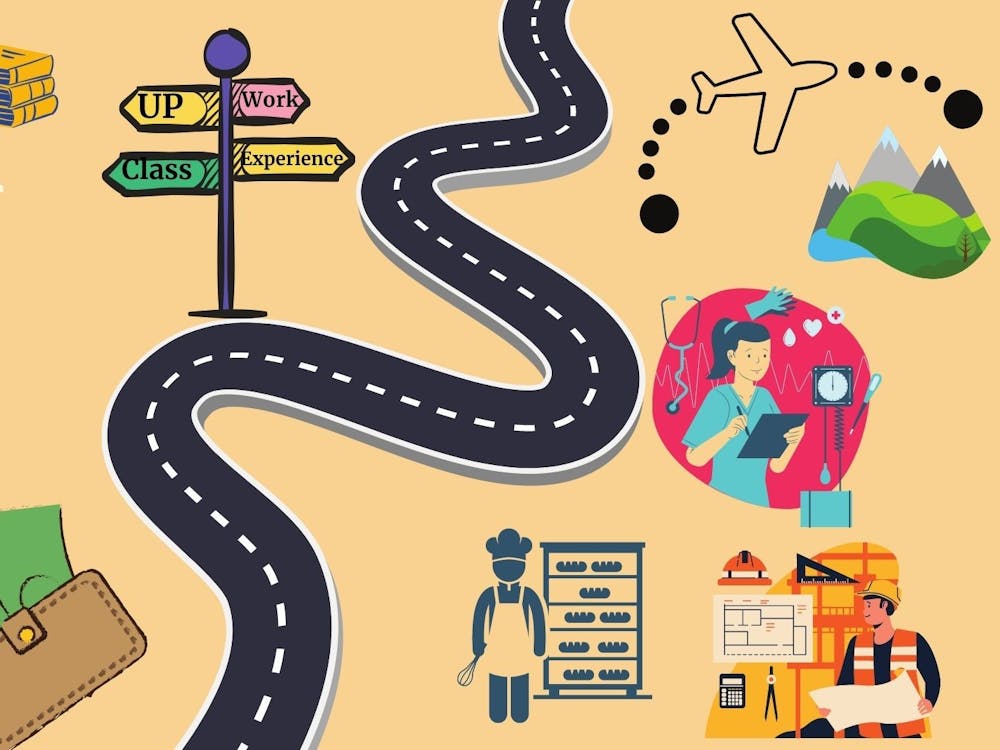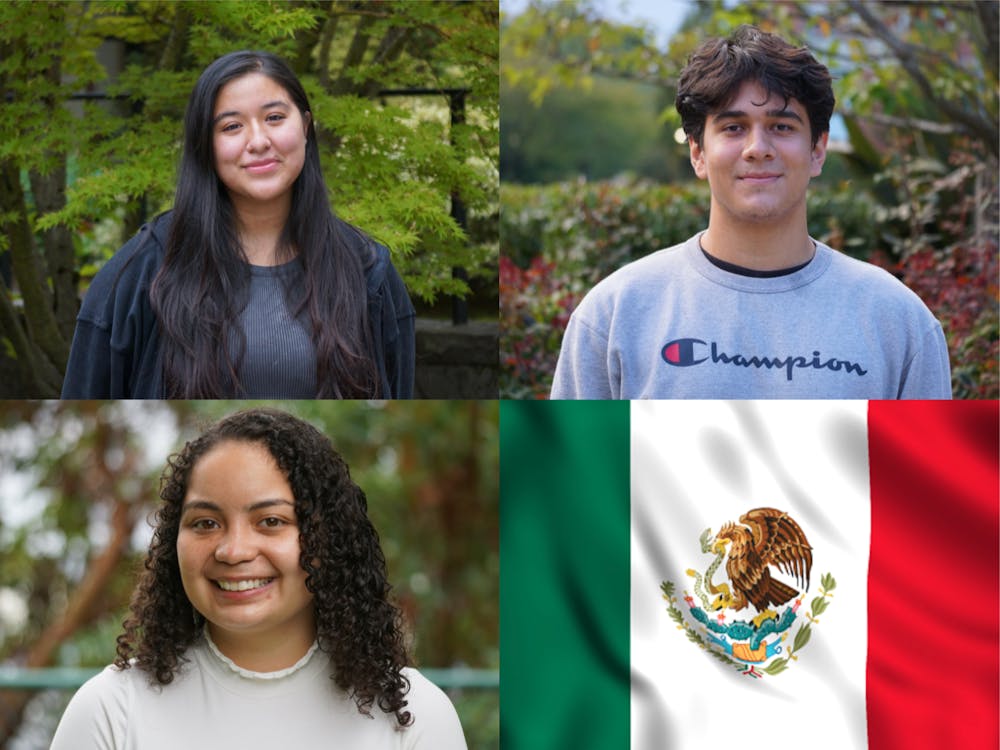In high school, I was obsessed with “Hamilton: An American Musical,” and not just for the incredible music, wordcraft and story-telling. The cast and ensemble proudly featured people of color in a refreshing and revolutionary way. To see a truly talented and diverse group of people be praised and rightfully recognized for their contribution to a pop culture sensation was something I hadn’t known to wish for before.
While prioritizing better representation in entertainment is an ongoing struggle, diversity and inclusion efforts in other everyday spaces are just as fundamental. As a young Asian woman from California, I am very fortunate to have grown up never feeling out of place due to my race, but many people in other situations don’t have that luxury. Since I can only write from my own experiences shaped by my privileges, I know there are angles and perspectives I don’t have, but I hope that my words resonate nonetheless.
I knew what UP’s demographics were before coming here. Anyone can check out UP’s website and look at the statistics — in the first semester of my freshman year, 53% of the incoming class was white and 16.4% was Asian, 14.1% was Latinx, 7.9% was mixed and 1.5% was Black. But knowing those numbers didn’t mean I knew what to expect mentally and emotionally because that’s only something you experience in person. In my four short years, through living in an amazing dorm community, taking classes on topics that matter to me and joining organizations and clubs, I’ve realized a great deal about myself and the way I fit into the world. I mean, they’re called formative years for a reason, right?
I’ve learned about the importance of setting boundaries and realistic expectations for myself. Within UP I’ve still found great communities of like-minded people that also care about the things that matter to me. I’ve reflected a lot on how my experiences shape my perspectives and my goals for the future. While I might not be able to change the world all on my own, it’s still satisfying to know that the things I have to say make people think and feel.
As I’ve become more familiar with the state of racial affairs in the U.S.and make the effort to stay informed, it’s clear to see how people of minoritized groups are treated in our capitalist society, how easy it is to be ignored and stay ignored, to be denied help and respect and basic human decency. It’s very simple for a society dominated by prejudice, hate and fear to make a person or even an entire group of people feel like they don’t belong and diminish their very presence.
As a woman of color sitting in a classroom of a predominantly white institution, it’s easy to become extremely conscious of my identity. For better or worse, I developed a hyperawareness of simply existing as an Asian woman when I stepped into new classes at the beginning of each semester, evaluating the number of white students and students of color around me. Nothing intense, just a quick glance around the room — it’s not something I force myself to do, but has nonetheless become a habit just because of that self consciousness.
Difference matters, or at least it feels like it does, especially in settings like the classroom, a space where all students are judged by the same assignments and the same benchmarks and are striving to achieve the same learning goals in the syllabus.
A lot of the time it does feel like a vulnerability, something that singles you out, something that can be held against you in some abstract, mess-with-your-mind kind of way. But “different” doesn’t equate to weakness.
It took me a long time to realize that my identity as a person of color can be a strength; it is a valuable and important part of who I am. Part of this process has been unlearning harmful stereotypes and rhetoric about minoritized identities and instead embracing those parts of me as a strength. I can choose to see that part of myself as something that carries a positive meaning, as something that connects me to others who share that identity with me instead of focusing on how it separates me from people who don’t.
This is a mantra that I remind myself of frequently because no matter how many times I say this to myself or have someone else affirm it, there’s always a sliver of doubt that worms its way back in. The relentlessness of imposter syndrome is a stubborn hindrance in maintaining a sense of self-confidence.
And this internal analysis doesn’t just happen in the classroom. It’s something that nags at the back of my mind in meetings, at events and when I apply for jobs and then lingers hours after a conversation has finished.
Especially in in-person settings, it affects how I choose to speak up, like how I engage in discussions, how I word my responses, and so on.
It can be easier, and may even be encouraged, for those who face oppression and injustice to keep their heads down, to not speak up, to “be the bigger person,” and to play by the rules in order to fulfill the illusion that everything will be okay.
But if we remain passive, nothing changes. Nothing gets better. And it is abundantly clear that the treatment of people of color is unacceptable.
So, for what it’s worth, to my fellow people of color, to those who hold other marginalized identities, take up space.
In classrooms, in clubs, in your work, in your friend groups, in all of the spaces you occupy, be present and don’t hesitate to contribute when you have something to say.
Remember that you are worthy of being in that space. You are paying to attend this university. You were hired for your job. You dedicate time and energy to your relationships. Your presence brings something valuable to those conversations and dynamics that leaves the world better for it.
Embrace the spaces that are meant for you and support efforts to make them more accessible, especially for those who need them. I strongly encourage students and community members alike to take advantage of Diversity and Inclusion Programming (DIP) events. DIP is an invaluable resource for finding community, meaningful conversations, and wonderful people with shared experiences.
But also, I know, easier said than done. It’s intimidating to speak up and put yourself out there and say yes to new things. It can be difficult to find those opportunities in the first place. It’s frustrating to be in a constant uphill battle amidst conditions you have little control over. It’s an exhausting, ongoing process. But I believe in you.
Although we may exist in a system that wasn’t built for us, we can take it back by finding ways to carve out our own spaces, and maybe in the process we can also shape something lasting for a better future.
One of the biggest themes of ‘Hamilton’ is the idea of legacy. How will people remember you after you’re gone? What is your story?
So don’t hesitate. Take up the space you occupy. Make sure the world knows you exist because you are here, you have a voice and you deserve to be heard.
Jennifer Ng is the Opinion editor and a photographer for The Beacon. She can be reached at ng21@up.edu.
Have something to say about this? We’re dedicated to publishing a wide variety of viewpoints, and we’d like to hear from you. Voice your opinion in The Beacon.








